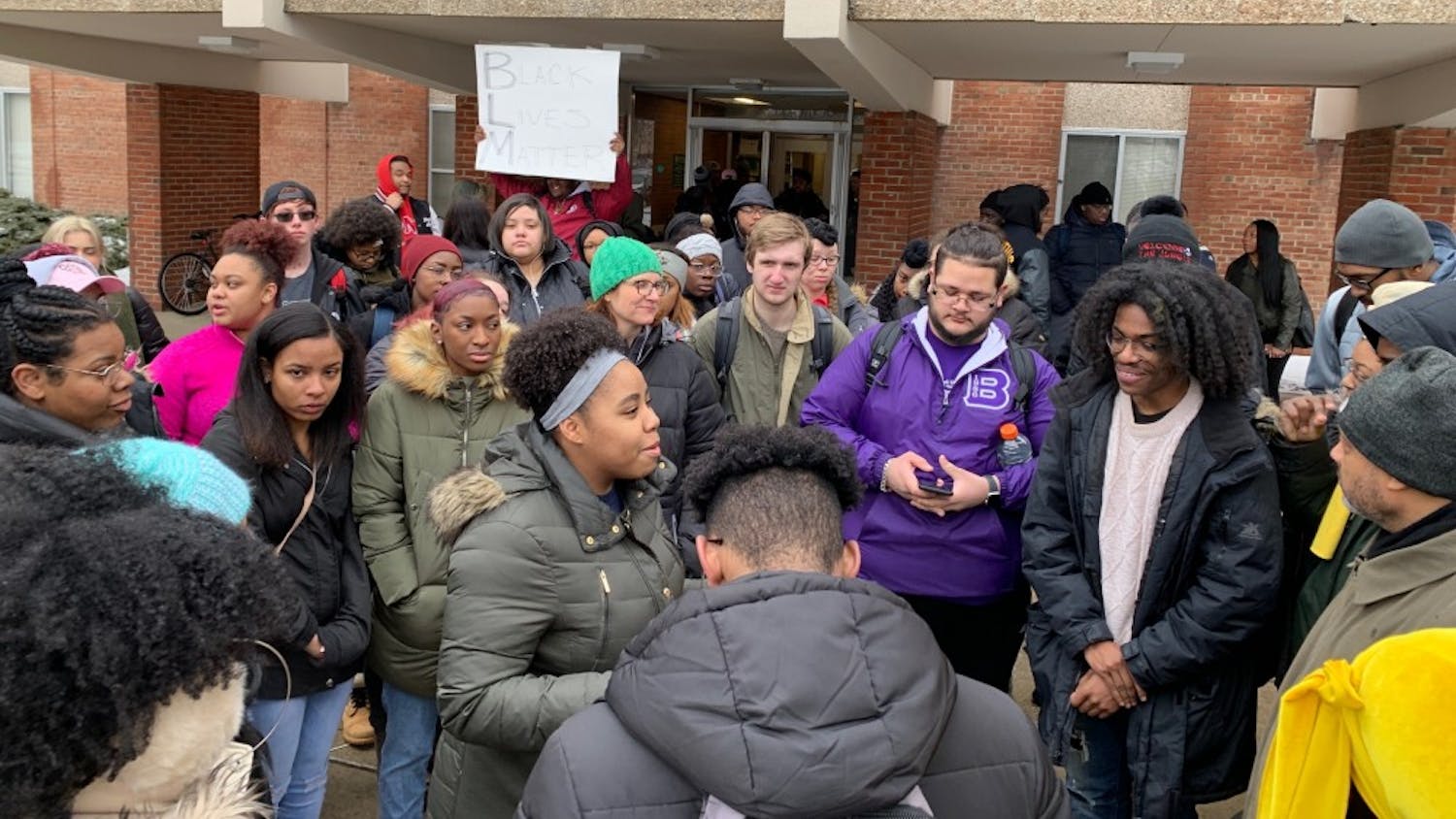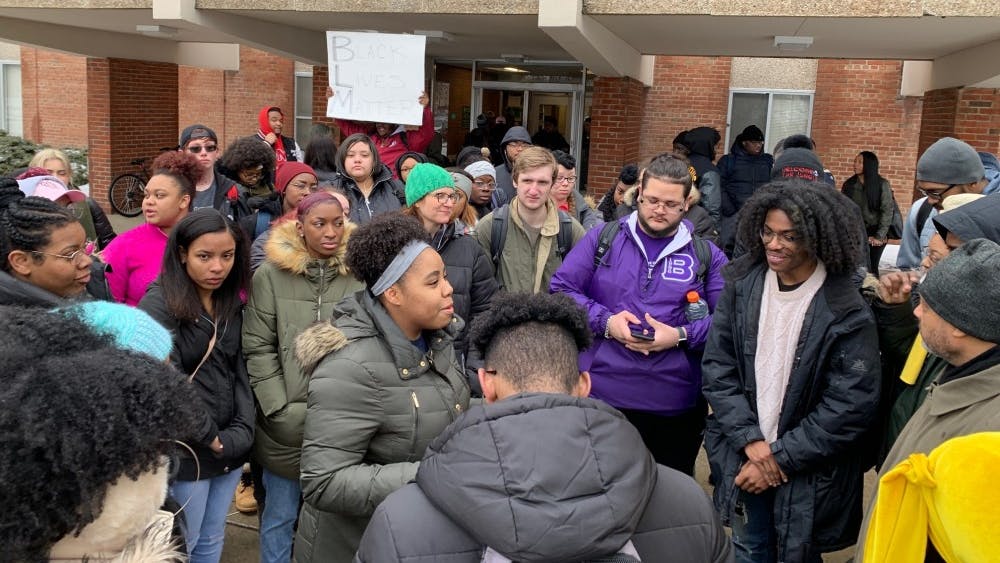Africology and African studies experts gathered in celebration of Black History Month to answer the question, “What is Racism?” in a panel discussion open to students, faculty and other Eastern Michigan University community members.
“It was significant to come here and not only hear about the history but to try and implement changes to our society that has been troubled for so long,” EMU freshman Cynthia Johnson said.
On Thursday, Feb. 21 in the alumni room of McKenny Hall, panelists Dr. Imelda Hunt, Attorney Mark Fancher, Attorney Robyn L. McCoy, Dr. Mark Higbee, Eric Brown and Dr. Mary-Elizabeth Murphy discussed how the start of disenfranchised races and ethnicities have been struggling ever since the first slave stepped on the shore of the United States.
Moderator Dr. Victor O. Okafor started with asking: “How are we going to implement our knowledge?”
To answer such a complex question, the panel decided to define what racism is and how the definition is constantly changing as our society changes.
“Racial prejudice plus power is used in many diverse training and anti-racist seminars and workshops,” Hunt said. “So, when we talk about racism, now we have a formula. It is the formula I am operating on now to try to understand this complex problem.”
With McCoy’s background in anthropology, she talked about the importance of knowing how other people see the world and how she wishes ethnic, cultural and race studies should be taught earlier in our lives.
“If you want to be competitive in this world, you want to know about other cultures,” she said. “In hindsight, the more you learn about culture, other people’s culture and about your own culture, the more marketable you are in the world economy.”
This discussion came just over a week after the incident at Best Hall when a student hung a black doll by its neck in the shower of an resident advisor, sparking the conversation about how the campus tolerates racism. Over the past academic year, there has been at least five other incidents that has caused students to wonder about the state of racism on campus with the majority of them involving the free speech walls.
“Racism comes down to the power both actual and perceived that a person might have over another,” Fancher said. “The laws on race are based on conduct and intent. It speaks in terms of discrimination, not racism.”
2019 is the 400th anniversary of the first shipment of slaves arriving in what is now the state of Virginia. Additionally, this year marks the 50th anniversary of the Black student takeover at Pierce Hall starting a movement on campus, which eventually led to the inclusion of Africology and African American studies in 1975.
Starting this past fall at Eastern Michigan, students can now study and receive a Masters in Arts in Africology and African American Studies, as well as already established programs for undergraduate studies.










